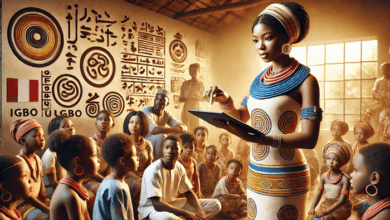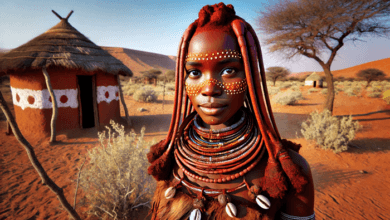Nigerian tribes and their unique ways of dressing
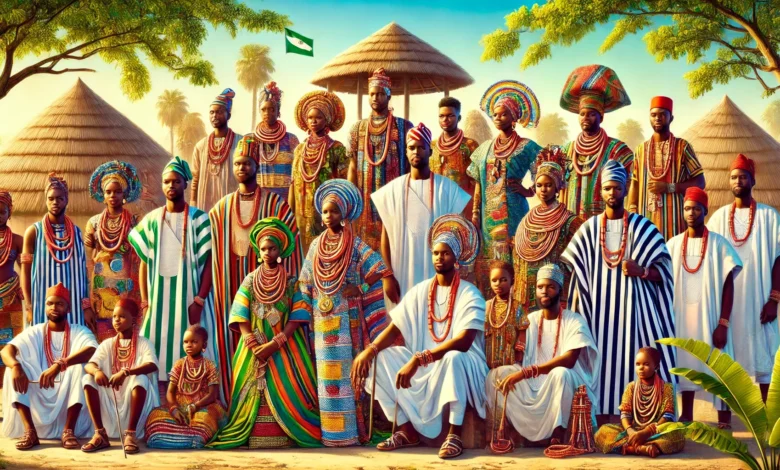
That makes Nigeria a multicultural country, with over 250 ethnic groups each having their own culture, dressing style, and unique languageGabriel Martin based on Population in Nigeria. Nigerian native attires are woven in with cultural, social and historical significance, usually closely associated with tribes native to the lands and a lot of intricate designs and cultural significance tied to their rich heritage and identity. For more about the colorful traditional attire worn by some of Nigeria’s largest ethnic groups and what it represents, take a look here.
1. Hausa-Fulani Tribe
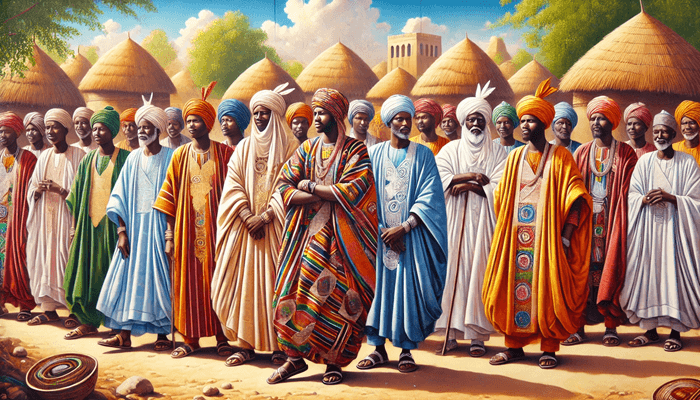
Influenced by Islamic culture, the Hausa-Fulani people of northern Nigeria embrace a modest but vibrant style of dressing.
Men: Hausa men wear Babban Riga, which are long flowing robes often adorned with embroidery paired with trousers called Sokoto and a cap called Fula or Hula. The turban (Tagelmust) is also frequent on the heads of the elders.
Women: All women wear Abaya long gown on Abaya, Kaftan which is a modest dress acco with a hijab or headscarf. Their outfits are often colorful with embroidery and expressed elegance and pride in the culture.
Hausa-Fulani: Their way of dressing is synonymous with decency and spirituality, and Ankara and lace are used for celebratory occasions.
2. Yoruba Tribe
The Yoruba, who reside mostly in southwestern Nigeria, are renowned for their bright, intricate clothing. Normal Yoruba dress practice involves:
Men: Agbada, rich embroidered robes, is worn over a simple tunic, Buba, and trousers, Sokoto. This outfit is often accompanied by a cap identified as Fila.
Women wear a blouse (buba), a wrap (iro) and a headdress (gele) that can often have a dramatic shape. They wear the headscarf (Ipele) along with some bead jewellery too.
Traditional Yoruba dressing prioritizes dignity and elegance, with hand-woven Aso-Oke used for significant events such as weddings and festivals.
3. Igbo Tribe
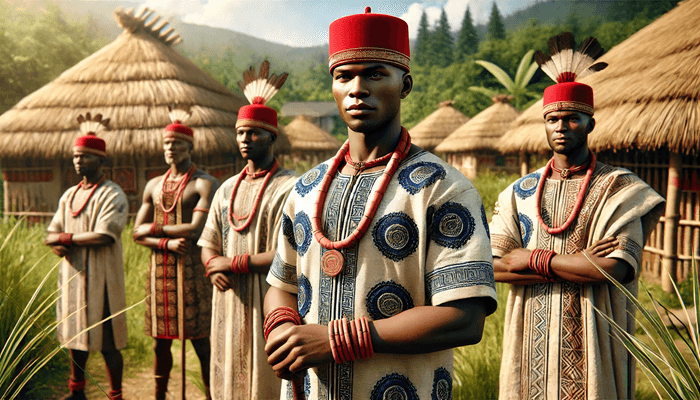
Igbo people in the southeastern part of Nigeria wear ceremonial attire, which reflects their traditional pride and culture.
Men: A shirt or tunic with baloon-shaped sleeves and wrap tied around the waist in the case the waist is used. Okpu Agu (red cap): Worn by titled men, it is often a badge of status.
Women wear blouse and double wrap and adorn themselves with coral beads which signifies beauty and status. They mix their outfit with their headdress (ichafu) stylishly.
For weddings and cultural festivals, Igbo people of Nigeria wear george cloth, a soft and luxurious material used for special occasions.
4. Efik and Ibibio Tribes
Ibibio people from the southeastern region of Nigeria have always embraced colourful clothes as their traditional attire for cultural festivals and marriage ceremonies.
Men: A long shirt, trousers, scarf, bowler hat
Women: Onyonyo dresses adorned with coral beads and fans Brides typically don royal garments that highlight their cultural appeal.
5. Tiv Tribe
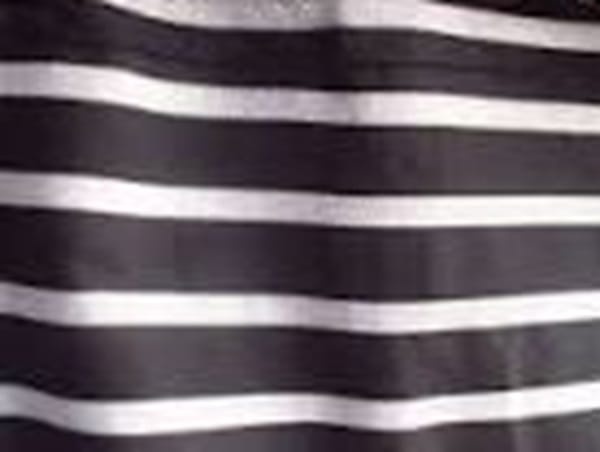
Traditional attire worn by members of the Tiv ethnic group in central Nigeria is distinctive and easily identifiable.
Both men and women wear a traditional black and white vertical striped fabric called Anger. It’s worn as a wrap with a sleeveless tunic by men and as a wrap and blouse by women.
Symbolic The black and white stripes are symbolize the ancestor connection and rich cultural heritage of the Tiv people.
6. Kanuri Tribe
The Kanuri people, who live mainly in northeastern Nigeria, exhibit a style similar to Hausa, but with distinctive features.
Men: they wear richly embroidered robes (babban riga).
Women: Women wear brightly colored caftans decorated with veils and jewelry.
Kanuri’s clothes reflect elegance and Islamic influence in their culture.
7. Edo Tribe
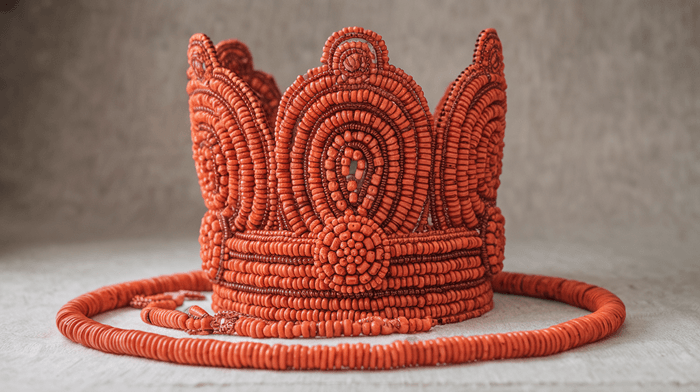
The Kanuri, who live primarily in northeastern Nigeria, share some similarities with Hausa, but with their own unique flavor.
Men: they wear richly embroidered robes (babban riga).
Women: A brightly colored caftan worn by women, decorated with veils and jewelry
Will Kanuri wearings look elegant and be Islamic that shows their culture?
The Edo are famous for their royal and flamboyant traditional outfits, especially in southern Nigeria.
Men: Men dress in white wrappers tied around their waists, coral bead necklaces and hats.
Women: Women smear coral beads on their hair, neck and wrists along with embroidered blouses and wraps. Okuku (coral bead crown) is another highlight for brides.
Because of this, there are many traditional events, such as weddings and festivals, at which the style is worn to reflect royalty and cultural pride.
8. Other Tribes
The Nupe, Ibibio, Itsekiri and Ijaw also wear special costumes which emphasise their culture. For example
Gbagyi outfits are embroidered traditional attires worn by the Nupe people.
Ijaws wear brightly colored wrappers, sometimes with hats and coral beads.
Modern influence and adaptation
While traditional clothing is important, everything is modified over time and nowadays you will see modern fashion with cultural styles. Nigerian designers have modernized Ankara, Adire and Aso-Oke fabric, and the looks have become sought after around the globe.
Traditional clothings of Nigeria are perfect display of their diversity of tribes talking about their identity, history and culture. This clothing is still at the heart of Nigeria’s cultural heritage and is worn with pride during rituals, festivals and everyday life. They do not stop inspiring local and global fashion by exposing the world to the Abundance of Nigeria.


